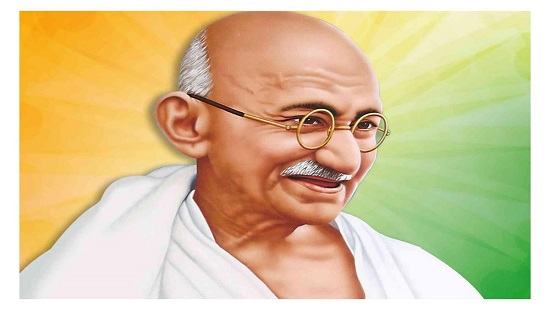
Gandhi Jayanti 2025: Remembering the Father of the Nation and His Timeless Legacy
On October 2, India will once again come together to honour the birth anniversary of Mahatma Gandhi, the Father of the Nation. The year 2025 marks the 156th birth anniversary of Mohandas Karamchand Gandhi, a leader whose vision of truth, non-violence, and simplicity reshaped not only India’s freedom struggle but also inspired movements across the world. This day is also globally recognised as the International Day of Non-Violence, observed by the United Nations to promote peace and harmony.
Who Was Mahatma Gandhi?
Born in 1869 in the coastal town of Porbandar, Gujarat, Gandhi went on to become one of the most influential leaders of modern history. His philosophy of ahimsa (non-violence) and satyagraha (truth and civil disobedience) became powerful tools in India’s fight against British colonialism. Unlike many leaders of his time, Gandhi rejected the idea of violence as a means to achieve freedom. Instead, he believed in the moral strength of peaceful protest, inspiring millions to join hands for a common cause.
Gandhi’s simplicity, humility, and faith in truth gave him a unique authority, making him not just a political leader but also a moral guide for the nation.
Landmark Movements Led by Gandhi
Throughout his life, Gandhi spearheaded several key movements that turned into defining moments of India’s independence struggle:
- Champaran Satyagraha (1917): His first major campaign in India, where he supported indigo farmers against exploitation.
- Kheda Satyagraha (1918): He stood by farmers in Gujarat demanding relief from unfair taxes during famine.
- Non-Cooperation Movement (1920–22): A call to boycott British goods and institutions, shaking the foundations of colonial power.
- Salt March (1930): Also known as the Dandi March, Gandhi walked 240 miles to break the salt laws, a symbol of defiance against colonial economic control.
- Quit India Movement (1942): His final mass movement, urging the British to “Quit India,” which became a turning point in the struggle for freedom.
Each of these movements showcased Gandhi’s firm belief that peaceful resistance could bring about revolutionary change.
How India Celebrates Gandhi Jayanti
Gandhi Jayanti is a national holiday observed across India with reverence and reflection. The main commemoration takes place at Raj Ghat in New Delhi, where leaders, citizens, and dignitaries pay floral tributes at Gandhi’s memorial. Prayer meetings, devotional songs, and moments of silence remind people of his ideals.
Across the country, schools and colleges organise essay competitions, debates, and skits based on his teachings. Cultural programs, bhajans (devotional songs), and art exhibitions also honour his legacy. Cleanliness drives and campaigns promoting self-reliance, inspired by Gandhi’s belief in swachhta (cleanliness) and khadi (hand-spun cloth), are also common on this day.
Gandhi’s Global Impact
While Gandhi’s struggle was rooted in India, his message of non-violence has transcended borders. Leaders like Martin Luther King Jr., Nelson Mandela, and the Dalai Lama drew inspiration from his philosophy. The United Nations officially recognises October 2 as the International Day of Non-Violence, reinforcing Gandhi’s timeless call for compassion and peace in a world often divided by conflict.
Gandhi’s Relevance Today
Even more than seven decades after independence, Gandhi’s teachings remain deeply relevant. In an age marked by social unrest, inequality, and global conflicts, his principles of truth, simplicity, and justice act as a moral compass. His call for Sarvodaya—the upliftment of all—continues to guide policies on inclusivity and sustainability.
His idea of self-reliance through khadi also resonates with modern campaigns like Make in India and Atmanirbhar Bharat, highlighting the enduring power of his vision.
A Living Legacy
Gandhi Jayanti is not just a remembrance of one man’s life, but a reminder of values that can reshape societies. As India celebrates Gandhi Jayanti 2025, the nation reflects not only on his role in achieving freedom but also on the enduring relevance of compassion, humility, and non-violence.
Gandhi once said, “Be the change you wish to see in the world.” More than a century later, those words continue to inspire millions, proving that truth and simplicity are forces strong enough to change history.




